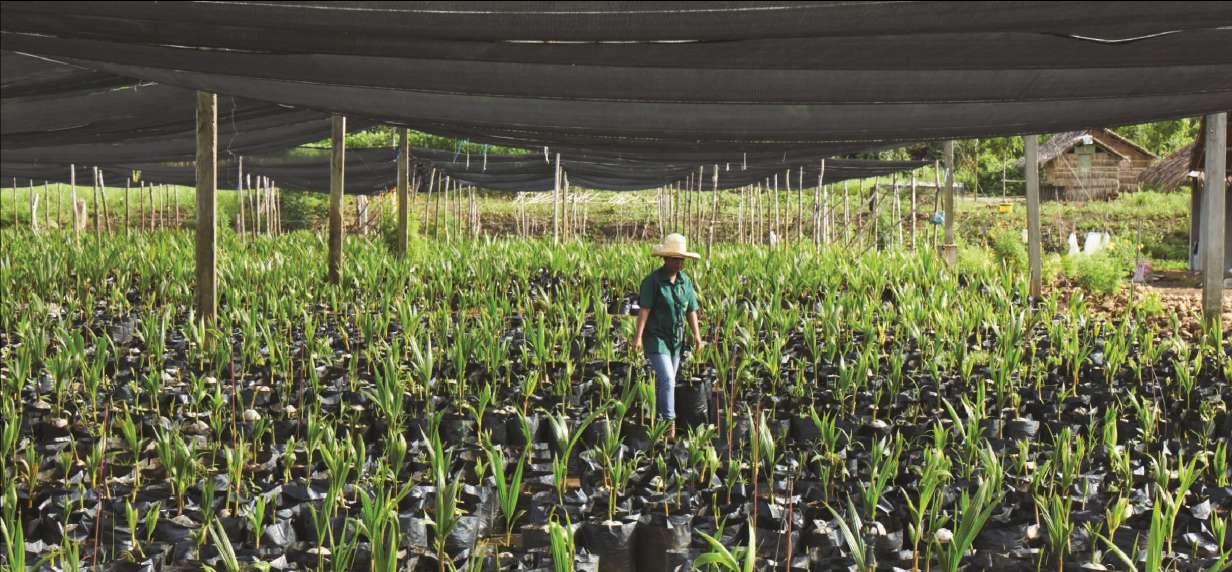As the global population grows, our food system is struggling to keep up. Coconut production is no exception: the value of the global coconut market was estimated to grow by 7.3% between 2020 and 2026. But supply was growing at just 1% per year.
This gap threatens the supply chains of products across the food and beverage and cosmetics industries. To make matters worse, coconut production is a fragmented industry that is dominated by small producers and intermediaries, which causes opaque supply chains.
About 95% of coconut trees are grown in small farms that are less than 5 hectares, and an International Labour Organization (ILO) report suggests that the typical farmer in the Philippines is in their late fifties and runs a farm of about 1.25 hectares. These smallholders are struggling financially, trapped without any bargaining power because their only access to the market is through an intermediary. This leaves them unable to raise the funds to replace trees and start using more productive modern farming techniques, which is a problem: it is estimated that up to 90% of Asia’s coconut trees are nearing the end of their productive lives.
Christian Eyde Moeller, Henrik Haagen and Anders Haagen, the founders of Lionheart Agrotech, decided that sustainability was the solution. Since they founded the company in 2015, they have trained hundreds of workers in sustainable agriculture, and have reduced the poverty rate in the municipality of Rizal from 65% to 25%. The founders claim that when the farm is complete, it is expected to capture and store the equivalent of the emissions from the entire power sector of the province of Palawan, where the farm is located. How did they do it?
1. They built environmental sustainability into their foundations
The key to Lionheart’s business model is the hybrid coconut tree, (the product of hybrid and dwarf coconut trees, which combine the benefits of both varieties). Co-Founder Anders Haagen was convinced that using these trees to produce coconut sugar rather than oil and whole nuts could produce drastically more calories per hectare of land – all while using 20 times less water than coconut oil.












